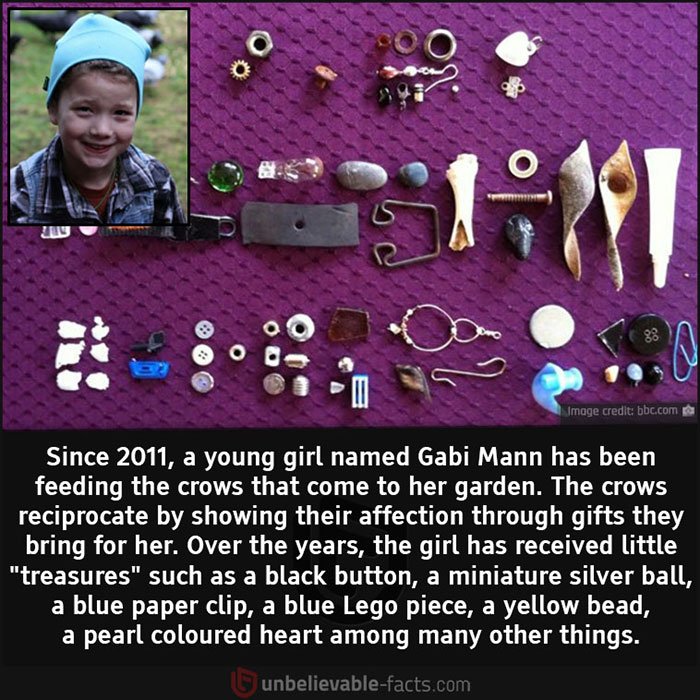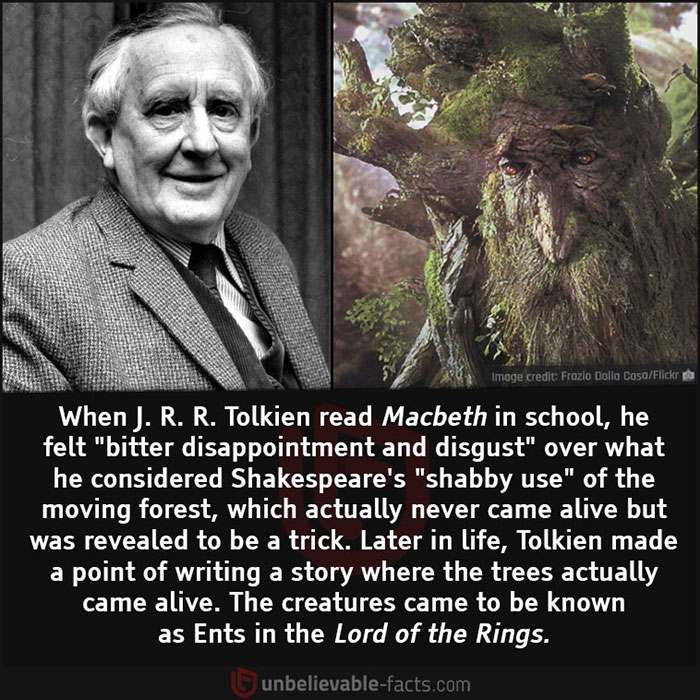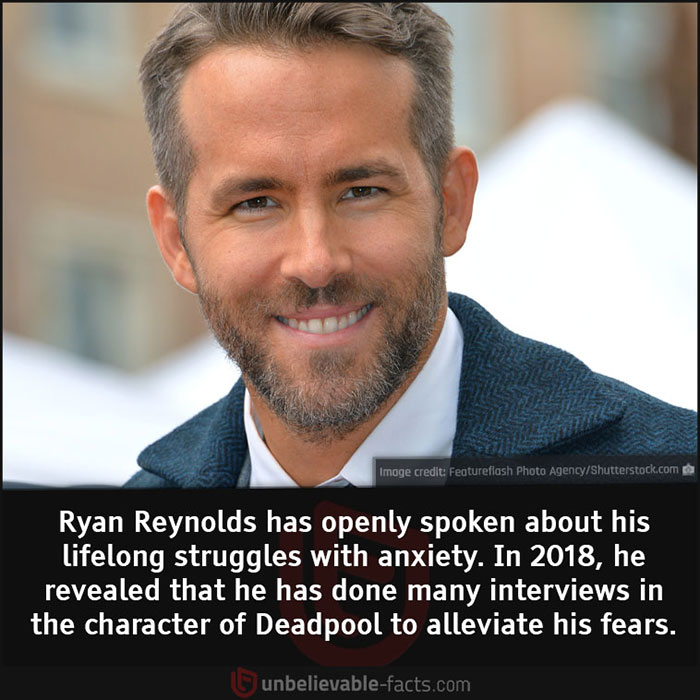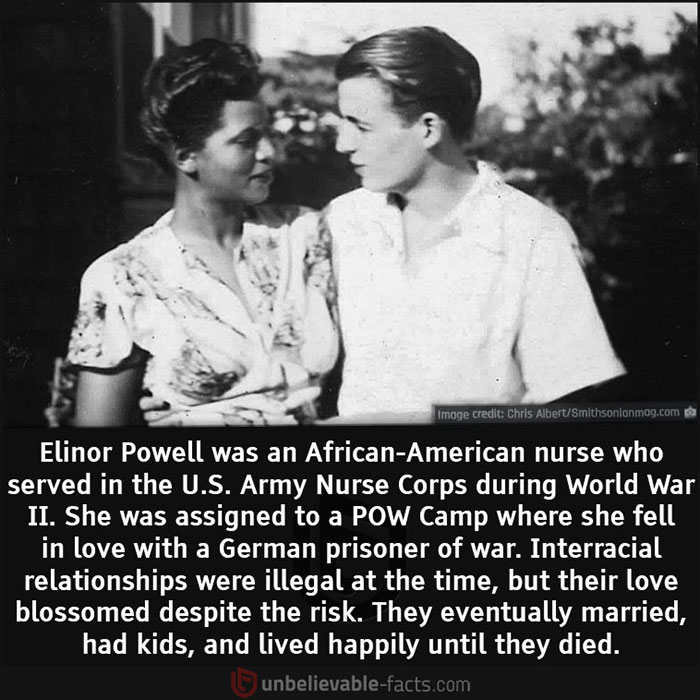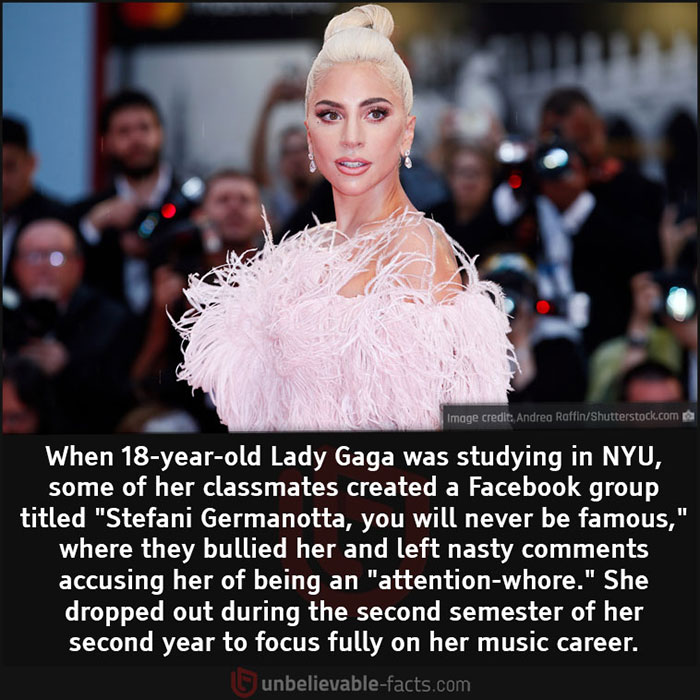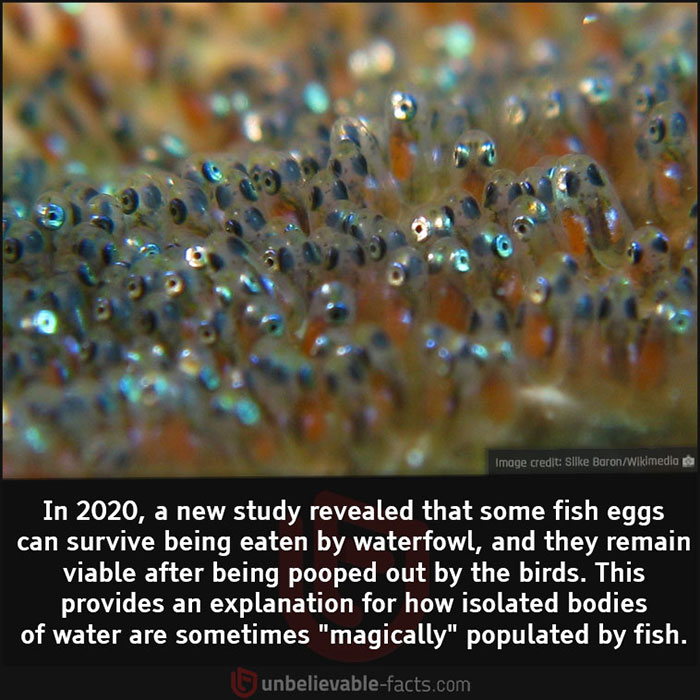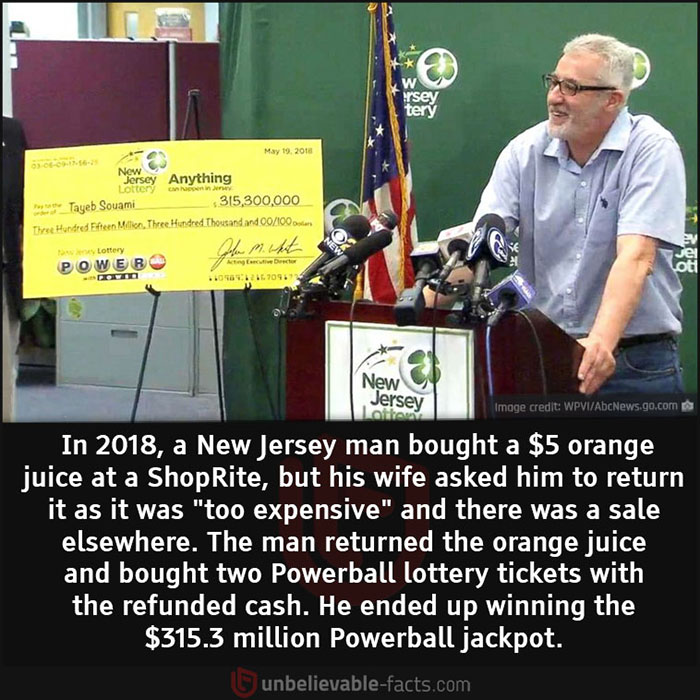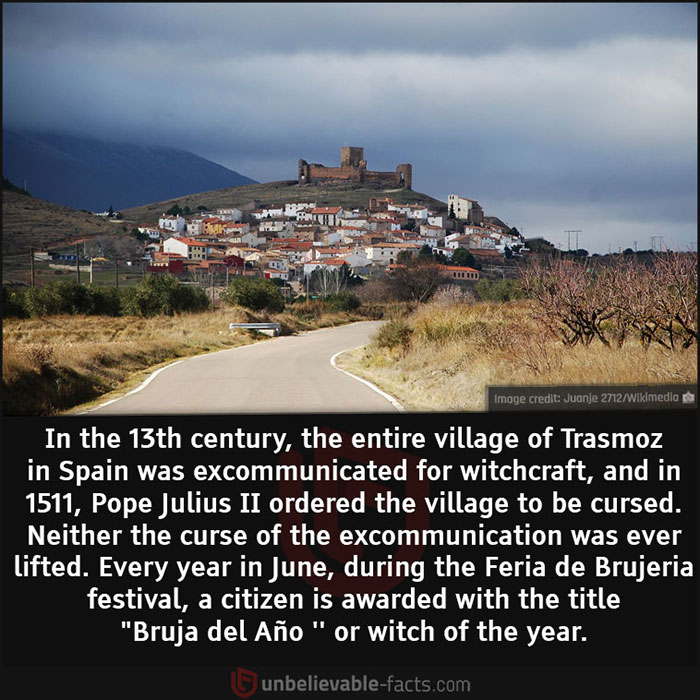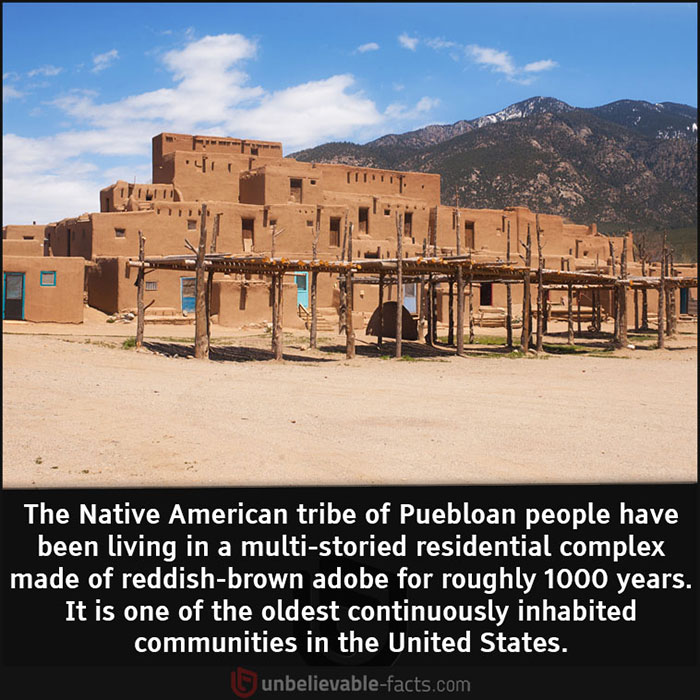Today, we can find new information in mere seconds just with the tips of our fingers. A few Google searches, some quick clicks on different links, and you’ve got what you’ve been looking for. Although not everything that we learn on the Internet makes us particularly smarter, it can still trigger our desire to know more.
There’s a Facebook page called Unbelievable Facts that is described as a “source for the best bizarre, strange and extraordinary stories on the Internet.” It’s a true powerhouse with more than 8.9M people who enjoy learning and sharing random bits of information. Like the fact that baking powder was born out of love or that aluminum is among the most recyclable materials ever created.
To show you just how interesting things can get, we have collected some of the best posts from their page. Continue scrolling and upvote the most mind-boggling ones!
#1
Image credits: UNBfacts
As the creators of Unbelievable Facts stated on their website, “What started out as a fun hobby turned into a full-time career.” They created this page so that people all over the Internet would be able to resolve their random curiosities and quench that thirst for knowledge.
The project was started in 2012 by Gourav Gola, an engineering graduate, who wanted to “share his interests with the world, and the world responded just as enthusiastically”. Since then, the project has been growing every day. Their goal remains the same as it was from the beginning—to bring the most remarkable stories to their fans and followers.
“Committed to finding and sharing the most fascinating facts, we create content around a plethora of topics—from science and entertainment to human history and society,” the creators wrote. What sets Unbelievable Facts apart from other similar pages is their commitment to quality over quantity: “We always strive to provide you with the most authentic stories and facts. Our search for the truth requires us to spend hours on a single piece.”
#2
Image credits: UNBfacts
We humans are naturally curious—asking questions, finding something interesting, and encouraging others to explore it as well. According to a study by researchers at UC Berkeley’s Haas School of Business, our information-seeking behavior is driven by the brain’s dopamine-producing reward system in the same way as money or food. In other words, our brain becomes addicted to information and wants us to seek it constantly.
“To the brain, information is its own reward, above and beyond whether it’s useful,” co-author of the study and associate professor Ming Hsu, Ph.D. told Neuroscience News. Research shows that our brain converts information into a similar scale as it does for money.
#3
Image credits: UNBfacts
#4
Image credits: UNBfacts
The paper focuses on studying curiosity and what it looks like inside the brain. The researchers scanned people’s brains while they were presented with a lottery with two financial outcomes, a gain and a loss. Participants were able to purchase information in order to find out the odds of them winning.
The results showed that most of the participants made rational decisions but they over-valued information in general. People wanted to know more not only because it benefited them, but also because they expected it to have benefits. “Anticipation serves to amplify how good or bad something seems, and the anticipation of a more pleasurable reward makes the information appear even more valuable,” Hsu said.
#5
Image credits: UNBfacts
#6
Image credits: UNBfacts
The paper shows that sometimes we want to know things just for the sake of knowing. However, we’re constantly learning new things not only because it’s addictive, but also because it can make us successful. There are so many advantages to it: a career boost, new opportunities or at least transforming dull conversations into exciting ones.
#7
Image credits: UNBfacts
#8
Image credits: UNBfacts
#9
Image credits: UNBfacts
According to Harvard Business Review, people who don’t give up too early and commit to learning report massive career benefits. If you wish to be one of those people, there are four crucial habits you need to improve.
#10
Image credits: UNBfacts
#11
Image credits: UNBfacts
#12
Image credits: UNBfacts
First, focus on emerging skills. The world is constantly improving, and so should you. If you want to know what are some of the most important and relevant skills right now, don’t be afraid to reach out to experts in your field. Then, if you’re looking for an online course, try the one that’s happening live—this way you could interact and collaborate with others. If a live course is not available, try convincing a friend to join you!
#13
Image credits: UNBfacts
#14
Image credits: UNBfacts
#15
Image credits: UNBfacts
Also, implementing learning immediately will help the information stick in your mind. You don’t want to get stuck in “theory land”, so find whatever opportunity you can to use your new skills. Finally, set a specific goal. This one is of the utmost importance: if you set your eyes on the prize, it will encourage you to keep going.
#16
Image credits: UNBfacts
#17
Image credits: UNBfacts
#18
Image credits: UNBfacts
We all know that the Internet is obsessed with facts. No matter where your interests lie, you can definitely find something on the Unbelievable Facts page. And if it seems like you’re putting too much random information into your brain, just remember that living a life full of thirst for knowledge keeps you young and excited about the future.
#19
Image credits: UNBfacts
#20
Image credits: UNBfacts
#21
Image credits: UNBfacts
#22
Image credits: UNBfacts
#23
Image credits: UNBfacts
#24
Image credits: UNBfacts
#25
Image credits: UNBfacts
#26
Image credits: UNBfacts
#27
Image credits: UNBfacts
#28
Image credits: UNBfacts
#29
Image credits: UNBfacts
#30
Image credits: UNBfacts
#31
Image credits: UNBfacts
#32
Image credits: UNBfacts
#33
Image credits: UNBfacts
#34
Image credits: UNBfacts
#35
Image credits: UNBfacts
#36
Image credits: UNBfacts
#37
Image credits: UNBfacts
#38
Image credits: UNBfacts
#39
Image credits: UNBfacts
#40
Image credits: UNBfacts
#41
Image credits: UNBfacts
#42
Image credits: UNBfacts
#43
Image credits: UNBfacts
#44
Image credits: UNBfacts
#45
Image credits: UNBfacts
#46
Image credits: UNBfacts
#47
Image credits: UNBfacts
#48
Image credits: UNBfacts
#49
Image credits: UNBfacts
#50
Image credits: UNBfacts
Go to Source
Author: Austėja Akavickaitė








